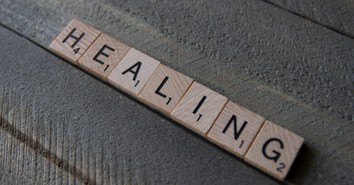The Single Life: A Change of Habit

Ah, the New Year…the season when we resolve to turn ourselves into healthier, happier people.
Of course, by the time you read this, many will have already given up on that idea. But for the committed (stubborn?) few who are still determined to make a change, let's examine the making and breaking of habits.
What is a habit, anyway? According to the American Heritage Dictionary, it's "a recurrent, often unconscious pattern of behavior that is acquired through frequent repetition." It's also a "distinctive dress or costume" or "an addiction" but those last two are topics for another day.i (Although it is interesting to note the "addiction" meaning has been around since 1887, so if you thought that phrase originated in the sixties you're about 120 years off.)
"We are what we repeatedly do. Excellence then, is not an act, but a habit." Aristotle
We tend to think of habits as negative: the aforementioned drug habits, drinking habits, and the like. But that's not really fair. Habits allow us to do things without really thinking about them. Is that a bad thing? Well, yes, if what you're doing is destructive. But it can also be useful—imagine how little you'd get done if you had to stop and think before doing every little thing. "Let's see now…door handle. Grasp, turn, push…"
That whole 'not thinking' part is what makes established habits easy to continue and more difficult to break. The first step, then, to making or breaking a habit is to engage your brain in the process.
Decide which habit(s) you want to add or delete and why. Without a good reason to change, it's going to be difficult. (Truthfully, even with a good reason it most likely won't be easy.) What constitutes a "good" reason is entirely up to you, but the more personal and compelling it is, the more likely you are to make a permanent change.
Another thing to ponder is why you haven't done this before. There could be something besides inertia at work here; you might uncover deeper emotional or psychological issues that need to be dealt with before you can make a change.
"The unfortunate thing about this world is that good habits are so much easier to give up than bad ones." Somerset Maugham
Make a plan of action and make it specific. Write it down. Start small. As Proverbs 6:6 says, "Go watch the ants, you lazy person. Watch what they do and be wise." (NCV) I'll just wait here while you go find an ant farm to study. . .What do ants do? They build entire cities—one grain at a time. Pace yourself. You won't go from committed couch potato to marathon runner in a day, but stick with the plan and in the fullness of time you will cross the finish line.
While you're at it, make a list of possible obstacles in your way and think of a way (or ways) around them. Then when something pops up, you'll have a plan in place.
"Bad habits are easier to abandon today than tomorrow." Yiddish Proverb
Once you've made your plan, get on with it. Don't use up all your energy planning—at some point you're going to have to, in the immortal words of Nike ads, "Just do it."
Celebrate milestones. Did you read your Bible every morning for a week? Turn down a homemade brownie? Organize a drawer? Congratulations! Take a moment to be proud of yourself. In the daily grind of habit-forming, we can easily lose sight of the big picture. Celebrate the little things. All the little things. You'll have a happier life if you do.
"Ninety-nine percent of all failures come from people who have the habit of making excuses." George Washington Carver
Keep your brain engaged. Remember, habits are things we do without thinking—so think about what you're doing. Think about what you're thinking, too. Old, outdated thought patterns can seriously mess with your actions.
While you're thinking, think about extending grace to yourself. Beating yourself up will only give you bruises. If you mess up, don't give up—get up and get going. One misstep does not make you a total failure. It's perfectly normal to be less than perfect. Use that experience to make you stronger, smarter, or more committed. (Or all of the above.)
Do not be fooled: "Bad friends will ruin good habits." 1 Corinthians 1:33 (NCV)
Find a support system that works for you. This could be anything from joining a class to enlisting an accountability partner. We're never too old to be affected by a peer pressure. But remember, it works both ways. If you're trying to stop drinking, don't hang around with barfly buddies during happy hour.
Finally, give it time. Most experts say it takes about 40 days to make or break a habit. Try this: mark the start of your new adventure on a calendar, then take stock after a month. You may be amazed at how far you've come! But you'll never know unless you start. And remember, just because you decided to make or break a habit doesn't mean you have to continue down that path the rest of your natural life. Some habits are only good for a season. I hereby grant you permission to change your mind.
One more thing: Be good to yourself along the way. Rest. Laugh. Spend time with the ones you love. Don't let this new resolution suck the life out of your life—that would definitely make it a bad habit.
i habit. Dictionary.com. The American Heritage® Dictionary of the English Language, Fourth Edition. Houghton Mifflin Company, 2004. http://dictionary.reference.com/browse/habit (accessed: January 06, 2010).

Susan Ellingburg is a natural-born Texan who sings at every opportunity, reads as much as possible, and cherishes every day she gets to spend with friends. She's a serious foodie and not-so-serious gardener who is determined not to let being single stand in the way of living an amazing life. Read Susan's blog at tastinggod.wordpress.com.
**This column first published on January 21, 2010.
Originally published January 21, 2010.





